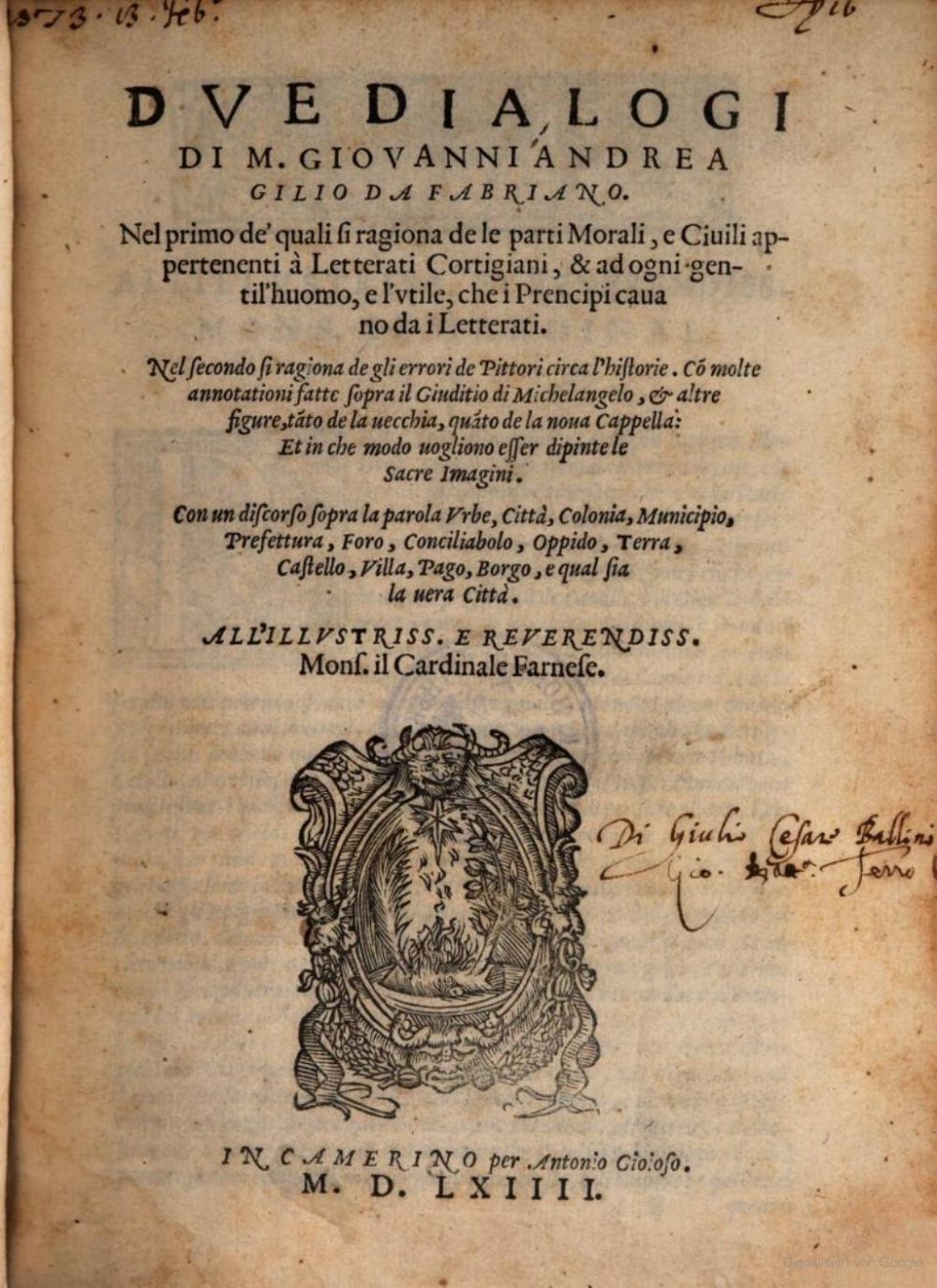
© ÖNB ABO Projekt/in Kooperation mit Google, Sig. 74.E.84 ALT PRUNK
In this part of the dialogue, the participants discuss inadmissible sources that the artist should not use, such as the Infantia Salvatoris or the Acts of Clement. They also instruct the artist not to follow the opinion of the masses, but that of scholars, authoritative and approved authors.
“M. Vincenzo said: ‘I would not like the painter to follow what is said in the Infantia Salvatoris, nor in the book called the Transito della Madonna, which was condemned by Saint Jerome in letter to Paola, nor in the book called Acts of Clement, which is rejected from among the sacred canonical texts, as mentioned by Vorgaine in the life of Clement from his Golden Legend. Nor would I like him to follow Pietro de’Natali in his Catalogus, nor the life of Saint Peter about things concerning Simon Magus in the above mentioned lives of saints, nor the Miracles of the Madonna that have been printed, because they are false, full of fables, end apocryphal; nor indeed any apocryphal book, but only (books by) good writers. Does not the (painter) consider an abuse the dragon of Saint George or a that of Saint Margaret, and the Tarasque of St Martha; are the Virgin letting drop her belt for Saint Thomas when she ascended into heaven, because he was not present at her funeral? Nor would I like (the painter) to follow the opinion of the crowd in composing his histories, but rather, if he does not wish to make mistakes, the opinion of learned and wise men, of authoritative and approved writers. Because by reading good books to learn the truth about the subject matter, he will be able to know what are abuses and what are not’.”
“Disse M. Vincenso: ‘Non vorrei che ‘l pittore sequitasse l’opinione de l’Infantia Salvatoris, del libro chiamato Transito de la Madonna, che San Girolamo, scrivendo a Paola, reproba, né del libro chiamato gli Atti di Clemente, il quale è riprobato dai Sacri Canoni, del quale il Voragine nel suo Legendario, ne la vita di Clemente Papa, fa menzione; né vorrei che imitasse Pietro di Natali nel suo Catalogo, né la vita di San Pietro de le cose di Simon mago ne il sopradetto Santuario, né i Miracoli de la Madonna che vanno in stampa, che sono falzi, favolosi et apocrifi, né nissuno libro apocrifo: ma i buoni scrittori. Non vi par egli che sia abuso il dragone di San Giorgio e di Santa Margherita, e tarascuro di Santa Marta, e che la Madonna lassasse la cintura a San Tomaso quando ella andava in cielo, perché non s’era trovato a le sue esequie? Né vorrei che ne l’istorie che egli ha da pingere sequitasse l’opinione del vulgo, ma de’ dotti e savi uomini e di scrittori autentici et approvati, se errar non vuole; perché, leggendo i buoni libri, potrà, informandosi de la verità del soggetto, sapere quai sieno gli abusi e quai no’.”
Gilio 2018, 138-140, n.160-164,



